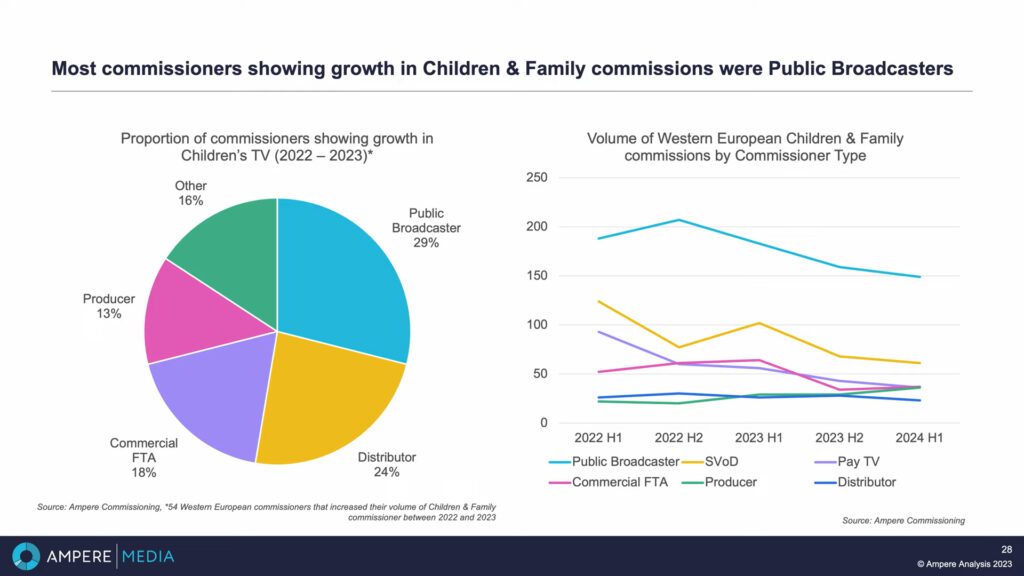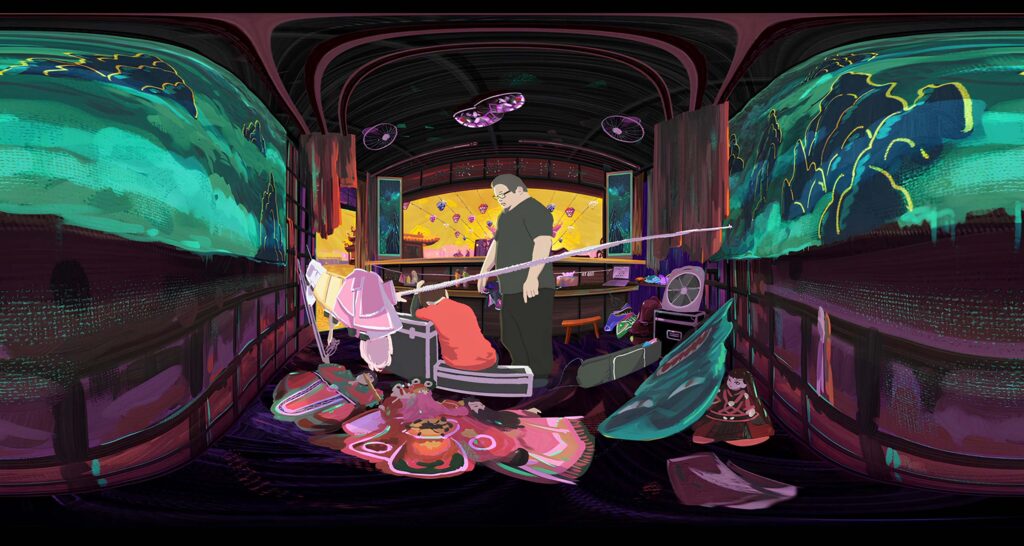
If at the beginning of this year, Ampere Analysis commented on the decrease in commission of new children’s content, the sector had a significant change thanks to streaming giants like Disney+, MAX, and YouTube who’s gaining increasing dominance among younger viewers. Traditional TV channels, while still significant as curators for various age groups, are battling to maintain relevance.
This is precisely a trend that we will see in the 2024 edition of MIPJUNIOR (October 18-20), where over 350 buyers from 60 countries are screening around 800 kids’ shows in Cannes.
Julian Newby, Editor-in-chief of Reed MIDEM Publications, commented on a recent report that one key trend is the demand for cross-cultural live-action series. ‘Audiences are drawn to stories with diverse characters and exotic locations, and shows like Theodosia And The Oasis Of Magic and Gangnam Project are prime examples’.
Theodosia, a tween drama produced by Cottonwood Media and German ZDF, which features an Egyptology theme with adventures across Paris, Belgium, and Morocco. Meanwhile, Gangnam Project explores the story of a Canadian-Korean teen’s journey of self-discovery at a K-pop training school. The show has been well-received, licensed in multiple countries, including Norway, Finland, and Australia, especially by public broadcasters.
Precisely in order to reduce commissioning costs, public channels have been implementing the co-commissioning strategy, which is another significant trend. ‘This model of collaboration, where broadcasters pool resources from the ground up, has become increasingly common in children’s content’, commented Newby. Xilam Animation‘s new preschool series Piggy Builders, co-commissioned by France Télévisions, BBC, and ZDF, is an entertaining spin on the classic Three Little Pigs tale. Scheduled for a full release in 2025, its first episodes will debut at MIPCOM, and the series emphasizes family values, teamwork, and humor. The theme of girl empowerment continues to be a dominant across children’s programming. French production company 2 Minutes is adapting Erika And The Princes In Distress, a comic book that inverts traditional genre stereotypes, portraying a warrior princess who rescues enchanted princes. This edgier series echoes the success of Nickelodeon‘s Nella The Princess Knight, catering to a tween audience looking for strong female characters.
Digital platforms are playing a more integral role in kids’ media, as seen with shows like PeaKeeBoo, which is transitioning from YouTube shorts to full animated episodes. This trend of “cross-fertilization” between digital and traditional media has become essential for expanding audience reach. Similarly, The Guava Juice Show, a YouTube original, has already been picked up by UK streamer ITVX, demonstrating the growing synergy between online platforms and traditional broadcasters.
Childrens’ content in Latin America has also been successfully venturing into this trend of streamers-to-TVs. El Reino Infantil, the brand created by Roberto “Kuky” Pumar, is one of the greatest successes of an IP born in digital, which has been exported with success to other screens. Following this same line, there is the Argentine IP Plim Plim, by Guillermo Pino (Smilehood Media), a title that moves fluidly and successfully between digital and linear. Likewise, the IP Galinha Pintadinha, the Brazilian children’s project educational animation focused on children’s music, created by producers Juliano Prado and Marcos Luporini, which became one of Brazil’s biggest audiovisual successes of all time.
Spain, the Country of Honour at MIPCOM 2024, is also making waves in the kids’ content sector. Shows like Cuquín and Lea & Pop, produced by Canary Islands-based Anima Kitchent, highlight the country’s growing influence. The live-action series The Argonauts And The Golden Coin is another standout, blending adventure and nostalgia, drawing inspiration from classics like The Goonies.
The resurgence of anime is another trend that is reshaping the market, especially in Europe. Classic franchises such as Pokemon, Beyblade, and Dragon Ball are introducing new series, while properties outside the traditional anime space, like Tomb Raider and Masters of the Universe, are now incorporating anime elements to appeal to a broader audience.







